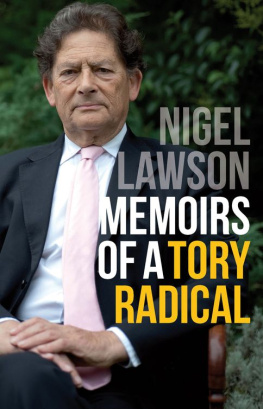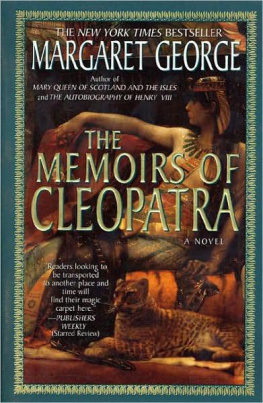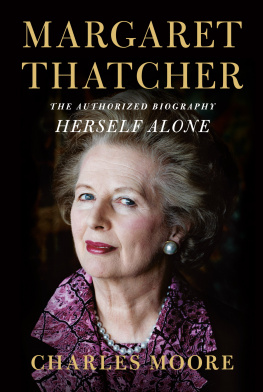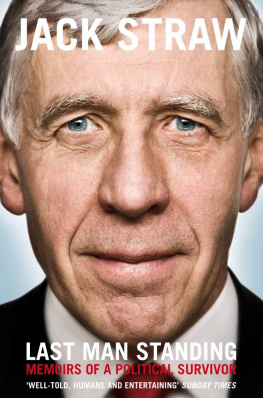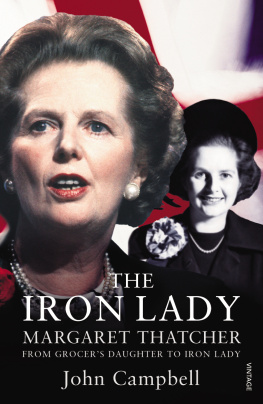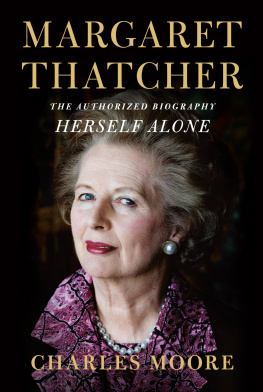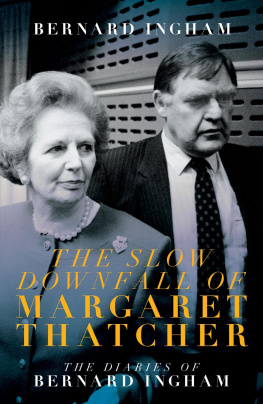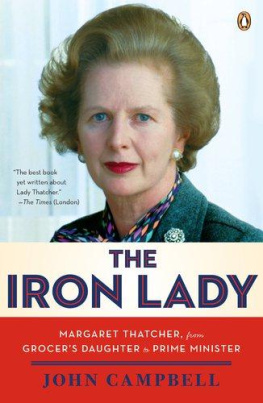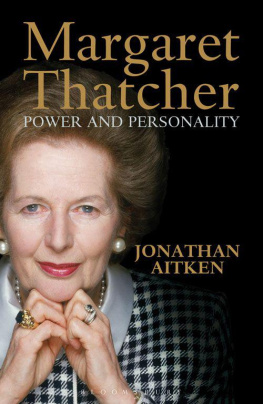This book is a half-length abridgement of The View from No.11, originally published in 1992, to which has been added a new concluding chapter. It is not an autobiography, but a ministerial, and in particular a Chancellorial, memoir. In other words, it excludes all that is most important in life. But politics and political office do matter, particularly when they are about more than office for its own sake. That was certainly the case with the Thatcher era, and with my part in it.
If this book is not an autobiography, neither is it an essay in the higher economic scholasticism. Although I have been heavily involved in economic policy and have sought to come to terms with rival economic ideas, I have done so as a politician rather than as an economist. But no account either of the Conservative Government of the 1980s or of the work of a modern Chancellor of the Exchequer can make sense without an explanation of the economic thinking that lay behind so many of the key decisions that were taken.
When I started this book I drafted it in strict chronological order, describing the events of 197989 as they happened. This certainly conveyed the reality of a Ministers, and in particular a Chancellors life, with so many different problems and issues jostling to be addressed at one and the same time. But it soon became clear that this real-life treatment would make the story all but incomprehensible. I have therefore compromised between the chronological approach and dealing with one subject at a time. As a result, some of the key conclusions emerge early on in the book. I have, however, liberally sprinkled dates to enable the reader to follow what was happening when.
Although the book is an account of the period, and of my part in it, as I saw it and see it, and in that sense is inevitably subjective, I have sought to be both accurate and fair. Should any inaccuracies have none the less inadvertently crept in for I did not keep a diary I apologise; but I would be surprised if they alter the account in any material way.
The original edition of this book was virtually completed before the turmoil in the foreign exchange markets of mid-September 1992, which led to the departure of sterling from the European exchange rate mechanism. While nothing that has happened since has caused me to resile from the view I took of the ERM as Chancellor, it has of course been overtaken by events with the coming of the Euro. That and other topics are covered in the new concluding chapter, which was written in August 2010.
Many readers may be particularly interested in the dramatic events leading up to my resignation as Chancellor in October 1989, recounted in part five of the book. But I would direct the readers attention to the first four parts, which are intended to shed some light on the working of British government. Most books about how decisions are taken in government tend to be written by academics or journalists: indeed, as a journalist many years ago, I co-wrote one myself. This, book gives the view from the inside. A further reason for directing readers to the first three parts is that many of the central policies of the Thatcher era were formulated at a very early stage, and remained in place thereafter. Thus some of the main discussion of the issues, and even of personalities, occurs in these parts.
This edition of the book has been produced with the invaluable assistance of Christopher Collins of the Margaret Thatcher Foundation, to whom I am very grateful.
This abridged version of The View from No.11 has been prepared from the first edition published in autumn 1992 and comprises just over 50 per cent of the original 1100 page text.
No general attempt has been made to update the original, which would have made little sense: The View from No.11 was written as a memoir, not a text book.
Nigel Lawson has added a few dozen footnotes where the text seemed to require contemporary comment: these begin [2010 note] to distinguish them from footnotes in the original. And he has written a new concluding chapter of reflections from the perspective of 2010.
In places, new material has been drafted to facilitate the process of condensation (typically, bridging sentences to allow cuts), but where that has been done, care has been taken not to alter the sense of the original. And it has been a firm principle throughout the business of editing that any hostages to fortune in the original should be left unransomed.
Entirely omitted are the final part of the 1992 book, The Abiding Legacy (which the new closing chapter replaces), as well as seven annexes reproducing some key documents and statistics.
From the main body of the text, much material on international economic diplomacy has gone, although not where it impacted significantly on domestic policy, as in the case, for example, of the Plaza and Louvre accords or European Monetary Union.
Many smaller cuts have been made at the level of sections, paragraphs, even sentences, intended to omit material of secondary interest without reshaping the book as a whole. It is hoped that almost everything belonging to the central story remains in the present text and that its powerful narrative force remains undiminished.
For those anxious to examine the original alongside the abridgement, it can be found online at www.margaretthatcher.org, the website of the Margaret Thatcher Foundation. Over time many hundreds of the documents on which the book is based will also appear there, selected from the official archives of the Treasury and No. 10, as well as from the private papers of Lady Thatcher and Lord Lawson, among many others.
Christopher Collins
Edinburgh, October 2010
Beginnings Early Beliefs Economic Evolution
BEGINNINGS
By way of very brief personal background, I was born on 11 March 1932 into a comfortable Hampstead household, complete with nanny, cook and parlourmaid. My father was a tea merchant, the proprietor of a small but successful firm in the City of London and my mothers father was the wealthy senior partner of a firm of stockbrokers. My family was not an especially political one. When the war ended I was sent to Westminster School, where my father had been educated. Unlike many public schools, Westminster is a worldly place. My main intellectual interest then was mathematics, in which I won a scholarship to Christ Church, Oxford, in 1951. I had intended to read law, but was dissuaded by a distinguished former Law Officer, Sir John Simon, who advised me that the study of law at Oxford was a poor preparation for the bar, which at that time I was contemplating as a future career. So, like many others, I read Philosophy, Politics and Economics (PPE), specialising in philosophy, partly because of a natural affinity between mathematics and philosophy.
Oxford philosophy was much influenced at the time by the school of Linguistic Analysis, and I became fascinated by it. It was in many ways an arid school, being concerned solely with the logical elucidation of every proposition. But it trained its practitioners to think clearly and identify nonsense, however dressed up, which was not a bad training for politics. Philosophy satisfied my taste for theory: my interest in economics lay in its practical application to policy. Economic policies cannot be chosen just by references to the eternal verities. Too much depends on the circumstances of time and place. Moreover, if there are any such verities, they are probably of the non-technical, uncomfortable kind listed in Kiplings The Gods of the Copybook Headings:
In the Carboniferous Epoch, we were promised Abundance for all,
By robbing selected Peter to pay for collective Paul:

